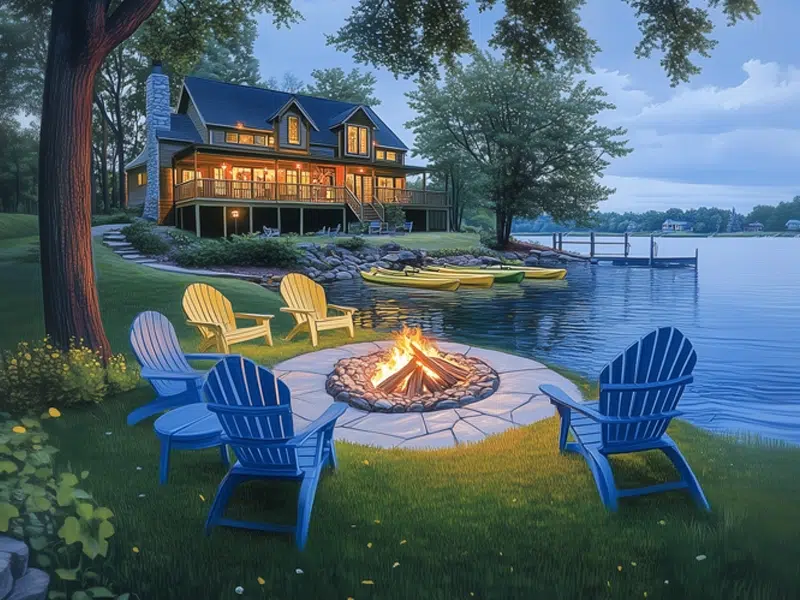Utah Airbnb Laws & Updates: Regulations Changes to Appease Local Communities
With the growing short-term rental industry, many Utah cities have chosen to pass additional Airbnb laws. From requiring permits to maintaining fire and safety standards, these are the laws that owners should be aware of.
If you have questions about short-term rentals in Utah, contact Proper Insurance. Our agents are experts in the vacation rental industry. Call 888-631-6680 today.

Cedar City, Utah
Seeks Balance Between Short-term Rental Hosts and Citizens with New Airbnb Laws
Joining an ever-growing list of cities seeking to pass Airbnb laws, Cedar City, Utah, has passed regulations governing the zones in which rentals are allowed to be operated and the types of licenses required. Operators of short-term rentals will be required to have a business license, carry insurance, and pay all required taxes. Other requirements include the following:
- License with the city in order to operate
- Adequate amounts of parking
- Compliance with all noise regulations
- Compliance with fire code
- A designated contact who is available to respond to complaints and issues 24/7
- Proof of liability insurance.
While Cedar City may require liability insurance on short-term rentals, a policy only covering liability leaves gaps for owners and hosts. The primary reason for an insurance requirement is to ensure that short-term rental owners are properly protected from injuries or property damage from a guest. However, the current requirement may cause confusion for owners as the type of insurance is not defined. Basic Homeowner’s insurance usually has a “business exclusion clause,” which limits coverage against any business activities and means that any liability claims relating to your short-term rental won’t be covered.
Commercial general liability is found in business insurance policies and protects the insured against claims of bodily injury or property damage they could be found legally liable. It is the most comprehensive liability insurance one can purchase for short-term rentals.
Kane County, Utah
Updated Laws and Regulations with Due to Rapid Short-Term Rental Growth
With a substantial growth in short-term rentals (STRs), Kane County now requires new rules to operate.
The following regulations are in place:
- Business License: A business license is required to operate a STR in Kane County.
- Taxes: Hosts must pay the Utah state transient room tax.
- Sales Tax: Hosts must pay the Utah state sales tax.
- Zoning: This can differ depending on what type of STR hosts are operating, but it is important to make sure STRs are in the correct zone as other regulations could be required due to the location of the STR.
- More Information: To stay up to date on current regulations, visit the Kane County page on vacation rental homes.
Salt Lake County, Utah
Enacts Additional Airbnb Laws Requiring Licenses for Short-Term Rentals
Salt Lake County has enacted a series of Airbnb laws seeking to balance between residents and hosts. Short-term rentals will now be required to obtain a license with the county. Applications for these licenses should include the following:
- The location of the short-term rental,
- The number of rooms therein contained,
- The number of persons the short-term rental will accommodate,
- The name of a property manager,
- A sales tax collection and accounting number,
- The name, address, and telephone number of a local responsible party who is available by telephone twenty-four hours per day
- The application shall include a statement by the applicant affirming that the applicant is currently in compliance with all legal requirements and has paid all applicable taxes, fees, and other charges, including but not limited to the transient room tax.
Hosts should also expect an inspection of the rental property in question with periodic follow-ups to ensure the safety of guests.
Washington County, Utah
Implements New Laws and Regulations
Washington County has created new regulations aimed at responsible tourism and maintaining neighborhood integrity. To stay up to date and current on short-term rental (STR) regulations occurring within Washington County, visit their website.
The following regulations are in place:
- License: Every STR needs to have a business license to operate.
- Safety: Property must be up to the city code and pass a health and safety check.
- Site Plan: Be prepared to provide a site plan of the property, the septic permit, and photos of the property.
- Insurance: Proof of insurance with a landlord endorsement that allows STRs is required. While a Landlord policy with an endorsement is better than a typical Homeowners policy, there are still gaps in insurance coverage you should be aware of. Proper Insurance offers a far superior policy for short-term rentals that also meets the requirements of Washington County by providing coverage for property, liability and revenue customized to include guest-caused theft/damage, liquor liability, amenity liability (bikes, kayaks, hot tub, etc.), bed bugs, squatters, and more.
- Good Neighbor Brochure: This brochure provides contact and license information and must be displayed in a visible area at each STR.
Verify Your Short-Term Vacation Rental Insurance Today
While some municipalities may not require insurance to operate a short-term rental, having a comprehensive policy protects you and your property. Proper Insurance is the nation’s leading short-term rental insurance provider protecting homes in all 50 states, replacing inadequate Homeowners/Landlord policies. Their comprehensive coverage meets or exceeds standard short-term rental requirements with $1M Commercial Liability (CGL) and unmatched protection for your property and revenue. Additional custom coverages include guest-caused theft/damage, amenity liability (bikes, kayaks, hot tub, etc.), bed bugs, fleas, squatters, and more.
Please note: The information provided is intended as a guide and may not be comprehensive or current. Regulations may change and could vary by area or situation. Always consult local authorities or a legal professional to ensure you have the most accurate information for your short-term rental property.



